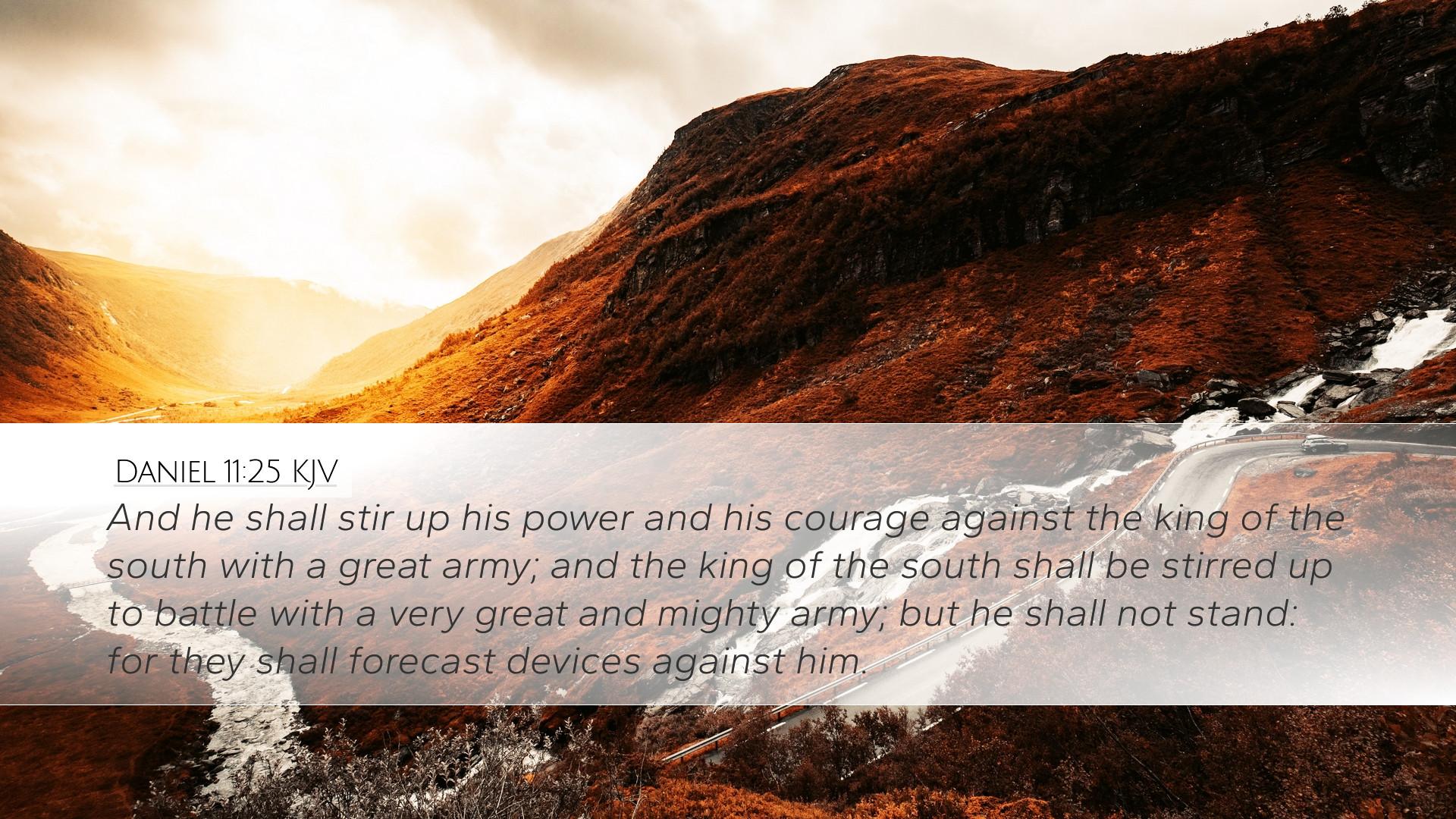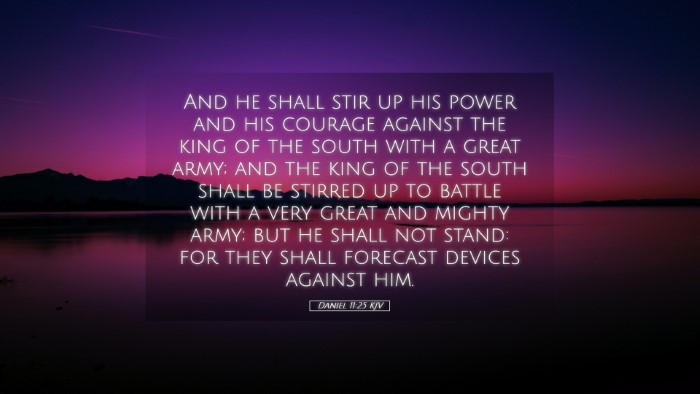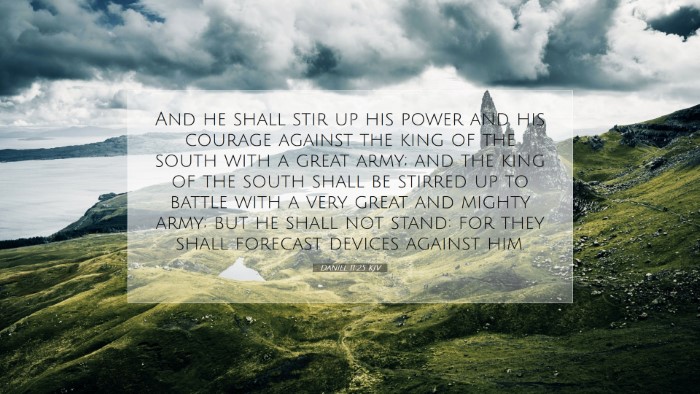Bible Commentary on Daniel 11:25
Verse Context: Daniel 11:25 states, "And he shall stir up his power and his courage against the King of the South with a great army; and the King of the South shall be stirred up to battle with a very great and mighty army; but he shall not stand; for they shall forecast devices against him." This verse is part of a detailed prophetic vision concerning the conflicts between the kings of the North and South, representing the historical interactions primarily between the Seleucid and Ptolemaic kingdoms.
Exegesis and Thematic Analysis
This verse emphasizes the martial exploits of the rulers involved, pointing to a period marked by military maneuvering and the effects of geopolitical ambition. The "King of the South" represents Ptolemaic Egypt, while the "King of the North" denotes the Seleucid Empire. The stirring up of armies indicates impending conflict, highlighting themes of struggle and divine sovereignty over earthly nations.
Insights from Matthew Henry
Matthew Henry remarks that this passage illustrates the unfolding of God's prophetic word as it pertains to the history of the world. He comments on the "stirring up" as not merely human ambition but also a divine orchestration of events to fulfill historical prophecy. Henry notes that God's providence utilizes human conflicts to carry forward His divine plans, emphasizing His ultimate control over nations.
Albert Barnes’ Interpretation
Albert Barnes interprets this verse as a vivid description of military strategy and conflict. He explains that the "King of the South" will respond to provocations with considerable force; however, despite their might, they will ultimately not prevail. Barnes highlights the tragic irony in human confidence against divine determination, where calculations and devices of war cannot thwart God's purpose.
Adam Clarke’s Commentary
Adam Clarke provides a historical lens, connecting this verse with the actual conflicts that took place between the successors of Alexander the Great. He identifies the figures in this prophecy, elaborating on the political ramifications of their battles. Clarke points out that while the King of the South may initially seem powerful, the underlying message is one of vulnerability in the face of divine prophecy.
Theological Implications
The theological implications of Daniel 11:25 extend beyond mere historical narrative. The verse serves as a reminder of the transcendent nature of God’s sovereignty. Amidst human chaos and ambition, God remains omniscient, orchestrating the unfolding of history according to His plans. This teaches pastors and scholars a vital lesson: the importance of recognizing divine authority even in tumultuous times.
Reflection on Human Conflict
This passage reflects the essence of human conflict, prompting questions about reliance on earthly power versus trusting in divine wisdom. The futility of the King of the South’s efforts illustrates the broader lesson that reliance on military strength and strategy—while often seen as determinants of victory—is ultimately in vain when set against God’s declared purposes.
Application for Today’s Believers
The relevancy of this scripture for contemporary believers lies in its encouragement to trust in God amidst uncertainty. When political powers and conflicts arise, Christians are called to remember that God’s plans transcend human endeavors. This verse serves as a source of comfort, instilling hope that God governs the affairs of men, steering history toward ultimate fulfillment.
Conclusion
In conclusion, Daniel 11:25 encapsulates a profound understanding of divine sovereignty and the interplay of human ambition. Drawing from established public domain commentaries, we recognize the layers within this verse that theologians, pastors, and students can explore. The rich tapestry of prophecy in Daniel invites believers to meditate on God's comprehensive plan and how it unfolds within the tumult of human history.


